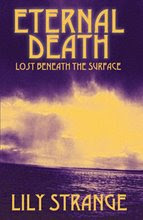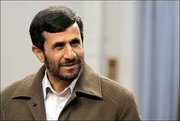

go here
On 14 May, 1948, the Jewish People's Council met at the Tel Aviv Museum and publicly declared the establishment of the State of Israel. The Jews had campaigned long and hard and had suffered immeasurably, for this day to become a reality. Through the whole process, they had met with friends and foes alike. They had been helped by those sympathetic to their cause, and had also been betrayed by some of these.
They had been aggressively opposed by their enemies and were on the extermination list of Satan and his cohorts. Israel by the help of God, miraculously survived through overwhelming odds to emerge as a nation in her own right. The text of the declaration of their independence can be read at http://www.israel.org/peace/independ.html.
The drive for the restoration of the Jewish homeland began in 1897 when the first Zionist Congress was convened in Basel, Switzerland by the spiritual father of the Jewish State, Theodor Herzl. Since then, active Zionists ceaselessly worked to help bring this dream and conviction to fruition. The first aliya or mass immigration of Jews took place in 1882-1903, the Jews hailing mainly from Russia. Another aliya took place in the years 1904-14, when Jews again from Russia, fled the pogroms (organized massacres) inspired by the Russian government. These Jews settled in Palestine and founded the first kibbutz (collective farm) and the first modern all-Jewish city, Tel Aviv in 1909. In those years, Palestine was still under the control of Turkey. Turkey however lost control of Palestine to the British during the First World War.
Meanwhile over in Great Britain during the ending years of World War 1, God was moving. Right there in the British Cabinet were men who had been brought up on the Bible and who were favourably disposed towards the concept of the formation of a Jewish homeland for the millions of Jews worldwide. One of them, the Minister of Foreign Affairs, Arthur James Balfour was instrumental in promoting the Jewish cause and on November 2, 1917, Balfour issued a historic letter called the Balfour Declaration which pledges British support for the establishment of a Jewish homeland in Palestine. The letter was presented to the head of the Zionist Federation in Great Britain, Lord Rothschild.
Several reasons have been cited for the Balfour Declaration, some political and one which involved a Zionist scientist called Chaim Weizmann who had helped the British in their war effort by developing a process to synthesize acetone, an ingredient used in making powerful explosives. The discovery at that time was like that of the atomic bomb during World War 2, for it gave the Allied Forces a decisive edge over their opponents. Whatever were the reasons, we know that it was the hand of God who had moved events and key people to bring about His purpose in these last days. Chaim Weizmann later became the first President (1948-52) of the new State of Israel.
With the Balfour Declaration, more Jews were encouraged to return to their ancient homeland. From 1919-23, the third aliya took place. In 1920, the Haganah, the Jewish defense organization was founded. Britain was given the Mandate for Palestine in 1922 by the League of Nations. By a twist of events, the land east of the River Jordan which had earlier been marked out as land for the development of Jewish agriculture, was handed over to Abdullah, the grandfather of Jordan's present King Hussein and was named Transjordan by Winston Churchill. Churchill also promised eventual independence for this new territory of Transjordan (took place in 1946). Thus, Israel lost this piece of land, which had been the inheritance of the Reubenites, the Gadites and half the tribe of Manasseh.
In 1928, there were changes in the British government and Britain began to compromise on the Balfour Declaration as they were also in need of Arab oil. The Arabs began to incite violence against the Jews in Palestine and bloodshed began in 1929. The Jews, not permitted to arm themselves, had their Haganah go underground. Finally, in 1939, Britain issued the White Paper which severely limited Jewish immigration to the Promised land to a mere 15,000 per year for 5 years, after which it had to stop. This was a blatant reversal of the Balfour Declaration given 22 years earlier.
The stage was set for another great calamity on earth, the Second World War (1939-45). Within 6 months of the White Paper, Britain was plunged into the World War. The Jews struggling to survive, faced the most horrid period of their lives. Satan was all set to wipe them off the face of the earth and to prevent the rebirth of the Jewish nation. The Holocaust, born in the mind of a demonically inspired Hitler, started in Europe and by the end of the War, it had claimed 6 million Jewish lives, equivalent to one-third of the total Jewish world population. The fury of Satan unleashed in the horrifying tortures and massacres of the Jews, however served only to promote and to expedite the Jewish cause. Satan's plan backfired. The Jews worldwide were convinced more than ever that they needed a homeland of their own in the midst of an anti-Semitic hostile world. World opinion also swung in favour of the Jews as world leaders, liberal Christians and others alike recovered from the shock of the Holocaust.
The United Nations was formed at the end of World War 2 and on November 29, 1947, the UN proposed that the land of Palestine be partitioned into Arab and Jewish states. The resolution was accepted by the Jews but rejected by the Arabs. The British Mandate (British rule) was due to end on May 14, 1948 and Palestine would be on its own after that. The Jews knew that their hour had come. The odds were against them. The Arab nations stood posed to drive them into the Mediterranean Sea should they take the step to declare their nationhood. They were advised to delay the announcement until they had built up their military strength. Here is what David Ben-Gurion, who later became Israel's first Prime Minister, said,
'Here then was the counsel of a friend and the military appreciation of our situation by one of the world's outstanding soldiers. On the face of it, such advice could not be dismissed lightly. Yet it could not deflect us from our chosen course. For Marshall (the adviser) could not know what we knew -- what we felt in our very bones: that this was our historic hour; if we did not live up to it, through fear or weakness of spirit, it might be generations or even centuries before our people were given another historic opportunity -- if indeed we would be alive as a national group.'
The Jews were resolved to proceed with their declaration. And this they did on that historic day, placing their trust in the Almighty. The United States and the then USSR both recognized the new State of Israel and Israel was admitted into the United Nations as a full member.
The next day, May 15, 1948, the Arabs attacked. Egypt, Syria, Iraq, Transjordan and Lebanon swept into the tiny fledgling nation from all fronts. The Arab armies were well equipped with the latest British and French fighters and bombers, tanks, heavy artillery, bombs and ammunition. The Jewish State however was a sorry contrast. Israel at that time had no regular army but some semi-autonomous paramilitary groups, each having their own command and agenda. They had no tanks, no military planes, no artillery and only 10000 rifles! And a will to survive. About 3600 Jewish and non-Jewish volunteers from about 29 different countries, battle-hardened and experienced from World War 2, men and women, responded to help Israel in her hour of greatest need. They came secretly into the country and were assigned to their units in the newly formed IDF, Israel Defence Forces. These volunteers were called the Machal.
Israel scoured the world for military equipment left over from World War 2 and had them secretly shipped to their country. They bought desperately needed military planes and other equipment and much needed supplies from some willing sellers and were charged highly for them. All these were ferried into Israel in clandestine operations and some of the pilots and air crew lost their lives or were captured by hostile governments in the process.
The IDF fought courageously for about a month and a truce was called by the United Nations on June11, 1948. The fighting resumed on July 9 and by January 7, 1949, the Arabs called for a cease-fire. The Jews had managed to arm themselves and with the help and the expertise of the volunteers, many of them in the Air Force and the Navy, they fought a winning war and the Arabs finally withdrew. The War of Independence was over, one of Israel's costliest and the most decisive war. The Arabs had no choice but to co-exist side by side with Israel.
Today, the State of Israel has about 4.7 million Jews which is about 36% of World Jewry as compared to 84,000 in 1922. The purposes of God can never be thwarted, no matter how hard Satan tries. Though Israel had been judged for their idolatries during the Divided Kingdom era and had been dispersed to the nations, God promised to bring them back to their land before the Second Coming of the Lord Jesus Christ (Eze 36:24, Matt 24:32-33). Israel is the fig tree, which the Lord instructed His disciples to observe as a sign of His coming (Jer 24:5-7). Today, the fig tree is established and the nation Israel is celebrating their 50th anniversary this year for the 50th year is the year of Jubilee (Lev 25:10).
Israel is certainly one of the main guideposts to watch for the unfolding of God's plan and we must continue to be watchful for the Lord will surely come, at an hour we are not aware of. So let us keep our ears tuned to news from Israel.
Rev Anna LimBA(B.S), B.Arch,M.ThVice PrincipalEl-Shaddai Conventions
The drive for the restoration of the Jewish homeland began in 1897 when the first Zionist Congress was convened in Basel, Switzerland by the spiritual father of the Jewish State, Theodor Herzl. Since then, active Zionists ceaselessly worked to help bring this dream and conviction to fruition. The first aliya or mass immigration of Jews took place in 1882-1903, the Jews hailing mainly from Russia. Another aliya took place in the years 1904-14, when Jews again from Russia, fled the pogroms (organized massacres) inspired by the Russian government. These Jews settled in Palestine and founded the first kibbutz (collective farm) and the first modern all-Jewish city, Tel Aviv in 1909. In those years, Palestine was still under the control of Turkey. Turkey however lost control of Palestine to the British during the First World War.
Meanwhile over in Great Britain during the ending years of World War 1, God was moving. Right there in the British Cabinet were men who had been brought up on the Bible and who were favourably disposed towards the concept of the formation of a Jewish homeland for the millions of Jews worldwide. One of them, the Minister of Foreign Affairs, Arthur James Balfour was instrumental in promoting the Jewish cause and on November 2, 1917, Balfour issued a historic letter called the Balfour Declaration which pledges British support for the establishment of a Jewish homeland in Palestine. The letter was presented to the head of the Zionist Federation in Great Britain, Lord Rothschild.
Several reasons have been cited for the Balfour Declaration, some political and one which involved a Zionist scientist called Chaim Weizmann who had helped the British in their war effort by developing a process to synthesize acetone, an ingredient used in making powerful explosives. The discovery at that time was like that of the atomic bomb during World War 2, for it gave the Allied Forces a decisive edge over their opponents. Whatever were the reasons, we know that it was the hand of God who had moved events and key people to bring about His purpose in these last days. Chaim Weizmann later became the first President (1948-52) of the new State of Israel.
With the Balfour Declaration, more Jews were encouraged to return to their ancient homeland. From 1919-23, the third aliya took place. In 1920, the Haganah, the Jewish defense organization was founded. Britain was given the Mandate for Palestine in 1922 by the League of Nations. By a twist of events, the land east of the River Jordan which had earlier been marked out as land for the development of Jewish agriculture, was handed over to Abdullah, the grandfather of Jordan's present King Hussein and was named Transjordan by Winston Churchill. Churchill also promised eventual independence for this new territory of Transjordan (took place in 1946). Thus, Israel lost this piece of land, which had been the inheritance of the Reubenites, the Gadites and half the tribe of Manasseh.
In 1928, there were changes in the British government and Britain began to compromise on the Balfour Declaration as they were also in need of Arab oil. The Arabs began to incite violence against the Jews in Palestine and bloodshed began in 1929. The Jews, not permitted to arm themselves, had their Haganah go underground. Finally, in 1939, Britain issued the White Paper which severely limited Jewish immigration to the Promised land to a mere 15,000 per year for 5 years, after which it had to stop. This was a blatant reversal of the Balfour Declaration given 22 years earlier.
The stage was set for another great calamity on earth, the Second World War (1939-45). Within 6 months of the White Paper, Britain was plunged into the World War. The Jews struggling to survive, faced the most horrid period of their lives. Satan was all set to wipe them off the face of the earth and to prevent the rebirth of the Jewish nation. The Holocaust, born in the mind of a demonically inspired Hitler, started in Europe and by the end of the War, it had claimed 6 million Jewish lives, equivalent to one-third of the total Jewish world population. The fury of Satan unleashed in the horrifying tortures and massacres of the Jews, however served only to promote and to expedite the Jewish cause. Satan's plan backfired. The Jews worldwide were convinced more than ever that they needed a homeland of their own in the midst of an anti-Semitic hostile world. World opinion also swung in favour of the Jews as world leaders, liberal Christians and others alike recovered from the shock of the Holocaust.
The United Nations was formed at the end of World War 2 and on November 29, 1947, the UN proposed that the land of Palestine be partitioned into Arab and Jewish states. The resolution was accepted by the Jews but rejected by the Arabs. The British Mandate (British rule) was due to end on May 14, 1948 and Palestine would be on its own after that. The Jews knew that their hour had come. The odds were against them. The Arab nations stood posed to drive them into the Mediterranean Sea should they take the step to declare their nationhood. They were advised to delay the announcement until they had built up their military strength. Here is what David Ben-Gurion, who later became Israel's first Prime Minister, said,
'Here then was the counsel of a friend and the military appreciation of our situation by one of the world's outstanding soldiers. On the face of it, such advice could not be dismissed lightly. Yet it could not deflect us from our chosen course. For Marshall (the adviser) could not know what we knew -- what we felt in our very bones: that this was our historic hour; if we did not live up to it, through fear or weakness of spirit, it might be generations or even centuries before our people were given another historic opportunity -- if indeed we would be alive as a national group.'
The Jews were resolved to proceed with their declaration. And this they did on that historic day, placing their trust in the Almighty. The United States and the then USSR both recognized the new State of Israel and Israel was admitted into the United Nations as a full member.
The next day, May 15, 1948, the Arabs attacked. Egypt, Syria, Iraq, Transjordan and Lebanon swept into the tiny fledgling nation from all fronts. The Arab armies were well equipped with the latest British and French fighters and bombers, tanks, heavy artillery, bombs and ammunition. The Jewish State however was a sorry contrast. Israel at that time had no regular army but some semi-autonomous paramilitary groups, each having their own command and agenda. They had no tanks, no military planes, no artillery and only 10000 rifles! And a will to survive. About 3600 Jewish and non-Jewish volunteers from about 29 different countries, battle-hardened and experienced from World War 2, men and women, responded to help Israel in her hour of greatest need. They came secretly into the country and were assigned to their units in the newly formed IDF, Israel Defence Forces. These volunteers were called the Machal.
Israel scoured the world for military equipment left over from World War 2 and had them secretly shipped to their country. They bought desperately needed military planes and other equipment and much needed supplies from some willing sellers and were charged highly for them. All these were ferried into Israel in clandestine operations and some of the pilots and air crew lost their lives or were captured by hostile governments in the process.
The IDF fought courageously for about a month and a truce was called by the United Nations on June11, 1948. The fighting resumed on July 9 and by January 7, 1949, the Arabs called for a cease-fire. The Jews had managed to arm themselves and with the help and the expertise of the volunteers, many of them in the Air Force and the Navy, they fought a winning war and the Arabs finally withdrew. The War of Independence was over, one of Israel's costliest and the most decisive war. The Arabs had no choice but to co-exist side by side with Israel.
Today, the State of Israel has about 4.7 million Jews which is about 36% of World Jewry as compared to 84,000 in 1922. The purposes of God can never be thwarted, no matter how hard Satan tries. Though Israel had been judged for their idolatries during the Divided Kingdom era and had been dispersed to the nations, God promised to bring them back to their land before the Second Coming of the Lord Jesus Christ (Eze 36:24, Matt 24:32-33). Israel is the fig tree, which the Lord instructed His disciples to observe as a sign of His coming (Jer 24:5-7). Today, the fig tree is established and the nation Israel is celebrating their 50th anniversary this year for the 50th year is the year of Jubilee (Lev 25:10).
Israel is certainly one of the main guideposts to watch for the unfolding of God's plan and we must continue to be watchful for the Lord will surely come, at an hour we are not aware of. So let us keep our ears tuned to news from Israel.
Rev Anna LimBA(B.S), B.Arch,M.ThVice PrincipalEl-Shaddai Conventions
Hamas resists Israel recognition
Hamas says all of Israel is built on occupied Palestinian land
Rival Palestinian political factions Fatah and Hamas have reached agreement on a common political strategy to try to end a damaging power struggle.
However, Hamas negotiators have denied earlier reports that the deal meant the militants would implicitly recognise Israel - a major policy shift.
The full text of the accord has not yet been released. A Hamas minister said it did not have "one word" on the issue.
The deal comes amid heightened tension over the capture of an Israeli soldier.
Israeli tanks and troops have massed on the border and Israeli Prime Minister Ehud Olmert has warned that a large scale military operation is rapidly approaching.
Palestinian statehood
Palestinian minister Abdel Rahman Zeidan told the BBC the Hamas-Fatah document did not in any way recognise the state of Israel.
DOCUMENT KEY QUOTES
"[Palestinians aim] to establish an independent state with holy Jerusalem as its capital on all the territories occupied in 1967"
"[Signatories commit to] resistance through various means, and confining resistance in the territories occupied in 1967, in addition to political, negotiating and diplomatic action"
"There is no agreement between the Palestinians on specifically this phrase. You will not find one word in the document clearly stating the recognition of Israel as a state. Nobody has agreed to this. This was not on the table. This was not in the dialogue," he said.
However, a Hamas member who helped negotiate the agreement, Ziyad Dayeh, said Hamas support for a two-state solution was nothing new for Hamas.
"When talking about a Palestinian state in the occupied territories of 1967, it means there would be another state on the other part of Palestine. It means, yes, practically, a two-state solution, and it's not a new thing - it has been offered by Sheikh Ahmed Yassin before," he said.
'No room for Jewish state'
The BBC's James Reynolds in Gaza says that the central point of the joint manifesto is the creation of a Palestinian state on the West Bank and the Gaza Strip.
Traditionally that is one half of a two-state solution, but the existing drafts of the deal make no mention of the second half of this solution - the state of Israel.
This omission is deliberate, our correspondent says.
While some have argued that this means Hamas tacitly accepts Israel's right to exist, it is becoming clear that that is not how Hamas sees it.
Hamas' Ismail Haniya has yet to reveal details of the deal
Hamas negotiators have told the BBC that the entire state of Israel has been built on occupied Palestinian land.
They believe that a Palestinian state on the West Bank and Gaza is a first step - not a final step.
They believe that future generations of Palestinians will reclaim all their historic homeland. And that, in the end, there will be no room for what is now the Jewish state of Israel, our correspondent says.
Mr Zeidan did say, however, that the Palestinian factions had agreed that the Palestinian state would be established inside the 1967 borders - and to delegate Palestinian Authority President Mahmoud Abbas "to negotiate with Israel on an agreement, a peace agreement".
'Out of reach'
News of the Hamas-Fatah manifesto came as a standoff over the abduction of Cpl Gilad Shalit, who was seized by Palestinian militants in a clash on the Gaza border on Sunday, continued.
There is one soldier but there have been hundreds of Palestinians kidnapped from their houses
Walid al-Houdaly
Palestinians back releases
Palestinian militants acknowledged for the first time on Tuesday that Israeli tank gunner Gilad Shalit was alive.
"The soldier is in a secure place that the Zionists cannot reach," said Mohammed Abdel Al, a spokesman for the Popular Resistance Committees, one of three Palestinian groups involved in Sunday's abduction.
According to Israeli media reports officials believe he was injured in the stomach and hand during the attack near Kerem Shalom.
Difficult choice
On Monday three Palestinian militant groups demanded the release of Palestinian women and youths being held in Israeli jails in return for news of the captured soldier.
Ramallah resident Walid al-Houdaly, whose wife and 18-month-old child are in an Israeli jail, told the BBC News website that he backed those calls:
Israel says time is running out before it moves to free Shalit
"There is one soldier, but there have been hundreds of Palestinians kidnapped from their houses," he said.
Speaking to the BBC on Tuesday, Israeli foreign ministry spokesman Mark Regev said that the release of Cpl Shalit must be immediate and unconditional.
"The state of Israel does not negotiate with terrorists," Mr Regev insisted. "Unless he is released it is our moral obligation as a government to take action to free him."
Intense diplomatic efforts have been under way since the soldier's disappearance, including mediation by an Egyptian delegation in the Gaza Strip.
The Israeli leader must choose between going ahead with military action that would endanger the life of the captured soldier or risk being seen as weak, says the BBC's Jon Leyne in Jerusalem.
And the Hamas-led Palestinian government must decide whether they are really willing to go into a full-scale confrontation with the Israelis which could have disastrous consequences.



























No comments:
Post a Comment